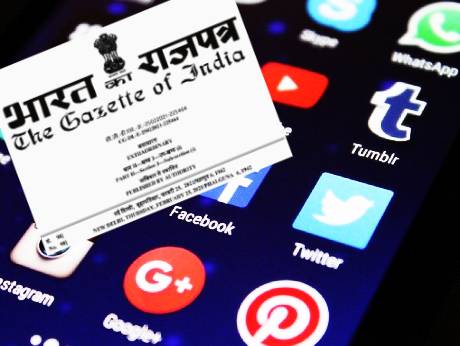
June 1, 2021: WhatsApp has moved the Delhi high court challenging the Intermediary Guidelines and Digital Media Ethics Code Rules, 2021 introduced by the Central government. WhatsApp argues that the rules that require it to “trace” the origin of particular messages sent would compel it to break privacy protections to users.
The Internet Society, an American non-profit organization founded in 1992 to provide leadership in Internet-related standards, education, access, and policy, has commented on the on going controversy in India:
"This is the first by a major social media company against India’s revised IT regulations. The new requirements in the the Indian Information Technology (Guidelines for Intermediaries and Digital Media Ethics Code) Rules, 2021 state that intermediaries would not "be required to disclose the contents of any electronic message," in the identification of the first originator of information. However the Internet Society reiterates its concern, shared by cybersecurity experts, that in order to comply with these traceability requirements, platforms may be forced to undermine end-to-end encryption.
In a report last year, more experts warned, "to comply with traceability requirements, platforms may be forced to enable access to the contents of their users’ communications, breaking end-to-end encryption and considerably weakening the security and privacy of their product."
"While the Ministry of Electronics and Information Technology (MeitY) has emphasized that encryption is not a target in these new Guidelines, cybersecurity experts both in India and abroad have pointed out that it is simply not possible for companies such as WhatsApp to try to comply with the new guidelines without suppressing at least some features that are integral for strong encryption to work properly."
"With the traceability requirement, the government appears to be compelling popular online platforms to weaken encryption without explicitly telling them to do so. The likely outcome will be for those platforms to stop offering end-to-end encrypted services altogether. End-to-end encryption is the gold standard for keeping Internet users and systems secure and an essential aspect of digital privacy which is imperative to the hundreds of millions of people in India who use Whatsapp.”
Opinion in Indian print media is somewhat nuanced:
The Hindu editorial June 1 2021: Ending encryption: On enforcing traceability on popular messaging apps:
The trouble with enforcing traceability is that without safeguards such as having any independent or judicial oversight, government agencies could seek any user’s identity on vague grounds and this could compromise the anonymity of whistle-blowers and journalistic sources, who can claim to be acting in the public interest..
The Hindu Businessline editorial: June 1 2021: Tweeting trouble:
WhatsApp, … has refused to comply with the requirement to trace the originator of a message on its network citing a breach of user privacy. But user privacy is conveniently ignored in its new terms of service that allow it to share data with other Facebook-owned and third-party apps.
New Indian Express: editorial: June 1 2021: New social media rules threaten privacy, free speech:
Justice B N Srikrishna, a retired Supreme Court judge who headed the Expert Committee on data protection constituted in 2017 by the Ministry of Electronics & Information Technology, has pointed out that demanding traceability of messages to the originator amounts to making “inroads into the fundamental right of privacy”. The demand is not legal unless it is backed by legislation passed by Parliament, he has said. Such onerous restrictions cannot be sneaked in via ministry ‘guidelines’.
Times of India editorial May 27 2021: Rights, responsibilities: Social media platforms can no longer be given special rights over content:
Social media platforms are hugely influential today, but still wish to function within a legislative framework of rights without responsibilities. This is no longer tenable…For its part, the government too needs to step into the modern era by liberalising laws on content, equally for both mainstream and social media. For a start, senseless colonial era laws on sedition must be repealed forthwith.